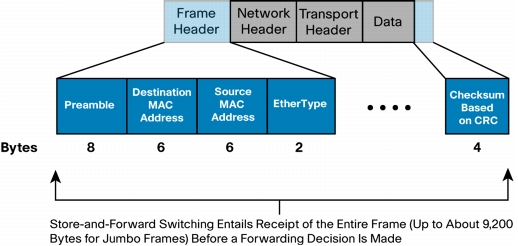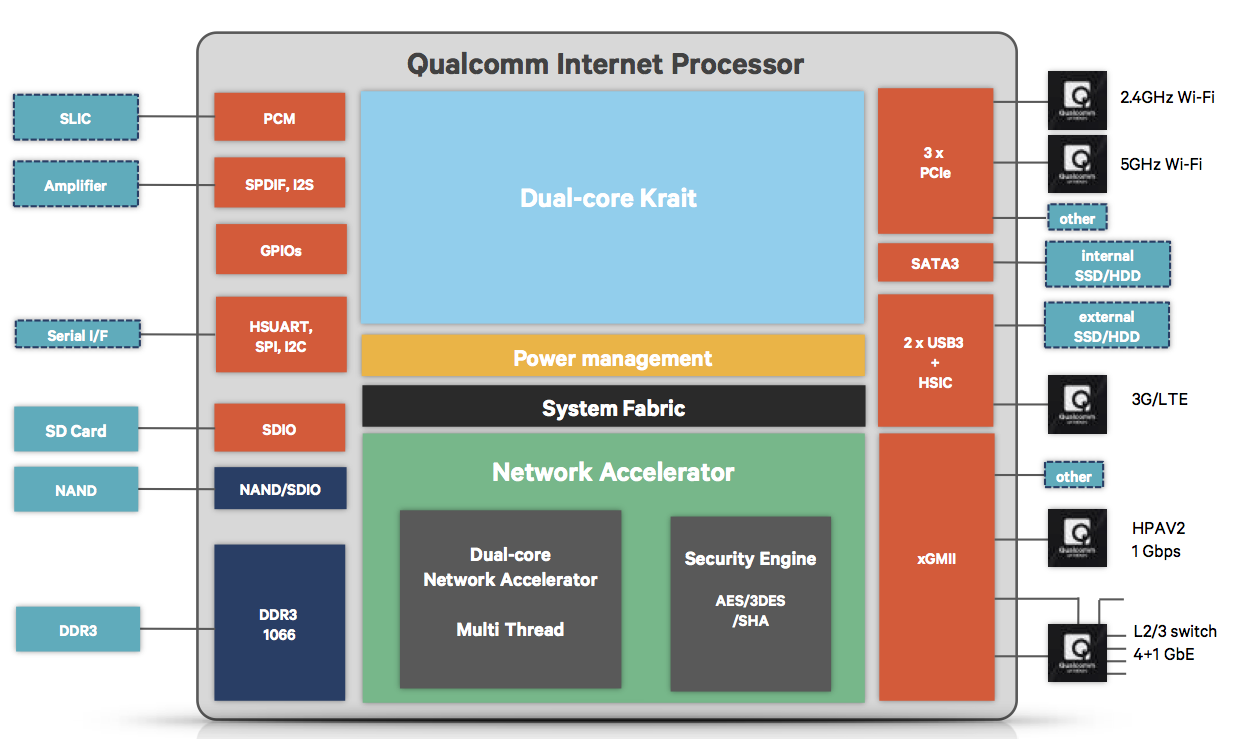
Read on SmallNetBuilder

Why is QoS suddenly in the mix? And why would anyone want QoS on a gigabit uplink?
- QoS may still be needed to manage uploads (consider not all users have 1000Mbps up, maybe only 100Mbps)Why is QoS suddenly in the mix? And why would anyone want QoS on a gigabit uplink?
And, of course, if you're trying to get a full gigabit through any VPN tunnel, you can forget using any consumer Wi-Fi router. Higher encryption levels mean lower throughput. So even with quad-core ARM processors and lower encryption levels, you'll be hard pressed to find anything that can provide higher than 50 Mbps through a VPN tunnel. For anything higher than that, you'll need to build your own router with a PC grade multi-core CPU.

Would be curious to see more about Alpine (quad/dual A15's) and some upcoming ARMv8 chips coming from Marvell and QCA...
Sorry, no. I'll pass on that review. I will be reviewing one of the cheapo Mikrotik hEX RB750Gr3 once I get the new router test process sorted.Any chance you can review this?
http://www.balticnetworks.com/mikrotik-cloud-core-router-ccr1009-7g-1c-pc-w-passive-cooling.html
No. I set out to find out why my tests did not show reduced throughput. ONE case reported was using port forwarding. So I set it as the default test case.the test, as I understood it from the first part of the article, seemed to be 'how much of the promised gigabit will a router deliver through a forwarded port?'
Uh. Yes. It's more than enough. Very few websites are even capable of supporting sustained Gigabit Ethernet rates.Overall gigabit is really not enough for most consumer use cases.
Tell me which consumer routers can handle gigabit wire speed and I'm happy to update the article.I don't agree with this statement. A lot of modern ARM based SoCs can run wire speed VPN these days.
Sorry, I'm confused. The tests show that port forwarding does NOT reduce throughput, with the possible exception of one case.Tim, I must say I was surprised by some of your results. In some cases (like Asuswrt), port forwarding is able to work with CTF enabled because they mark each packet that gets port forwarded. At the kernel level, any marked packet will then bypass CTF. Your results would indicate that there would still be some acceleration in place even when a packet goes through a port forward. Maybe Broadcom improved their CTF implementation over the years.
I tested the smart/ adaptive mode with all four categories checked. I don't have my test notes with me right now, so sorry I'm not being exact.Which type of QoS did you test on the Asus?
Tell me which consumer routers can handle gigabit wire speed and I'm happy to update the article.
What is "loaded" about the statement? If I'm wrong, I'm offering to update the article.That's a loaded statement
Interesting tidbit: Asus has an Alpine-based router in development...
We use essential cookies to make this site work, and optional cookies to enhance your experience.
